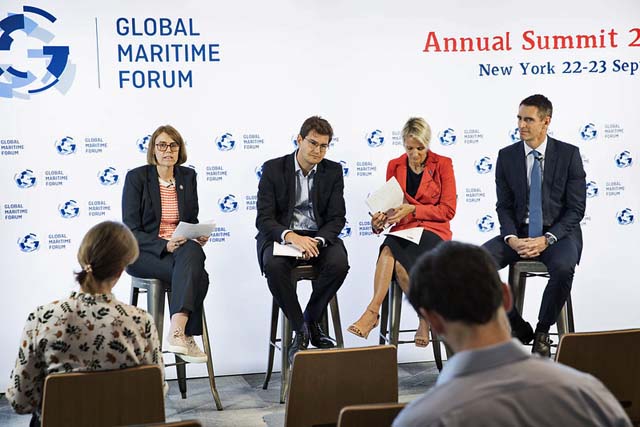A new report from the Global Maritime Forum summarises ideas for collective action discussed at the organisation’s Annual Summit, where over 200 maritime leaders sought to turn climate ambition into action, increase the maritime industry’s appeal to the right talent, and safeguard the benefits of global seaborne trade.
The key message that echoed across the discussions was that the maritime sector must not lose the determination to face long-term challenges despite current uncertainties.
Johannah Christensen, CEO Global Maritime Forum said: “Braving the rough seas facing the maritime industry will require unprecedented levels of collaboration. To succeed, the maritime industry will need to broaden its circle of stakeholders to embrace new perspectives and ensure equity. It will require collective courage.”
One of the focal points of the discussions was the need to fully decarbonise the maritime industry by 2050. Participants saw great promise in the Green Corridors principle to accelerate the introduction of green ships and fuels.
The following key areas were identified for further action:
- Potential new ownership models of ships
- Public and private support for Green Corridors
- Ammonia safety demonstrations
- Coordinated planning and implementation of Green Corridors.
The report stresses the crucial role of policy to enable the transition, and suggests a basket of policy measures to reach zero emissions by 2050, including a carbon tax, a ban on new fossil-fuelled vessels by 2035, and a fuel emission standard.
After the Annual Summit, a group of participants released an eight-page insight brief detailing their recommendations for key actions at the IMO, including setting clear 1.5 deg C-aligned interim targets for GHG emissions reduction.
There is short-term potential for operational efficiency measures that can be taken in the short term. A taskforce, convened by the Global Maritime Forum, will explore such short-term actions to reduce shipping emissions.
Hugo De Stoop, CEO Euronav said: “We need to start making people aware of the potential of short-term action to reduce emissions. Let’s not forget we’re talking about 20-25% savings. That’s 200 million tons of CO2 in the atmosphere that we can save. If people don’t want to do it for the planet, they can do it for their wallet.”
Issues related to human sustainability were also prominent in the discussions because global competition for talent is increasing. To make the maritime industry more attractive and able to take on future challenges, maritime leaders suggested investing in education, better communication of the role the maritime industry and maritime workers play in global trade as well as improving diversity and inclusion to broaden the talent pool.
Gerardo Borromeo, Vice Chairman and CEO, Philippine Transmarine Carrier, said: “The ‘s’ [in ESG] is where it all happens. We all have to agree on what kind of people, how we’re going to get them and what it is going to cost to ensure that we have the right people today while thinking of 5, 10, 15, 20 years from now.”
The report can be read here, with the shorter insight brief here.



